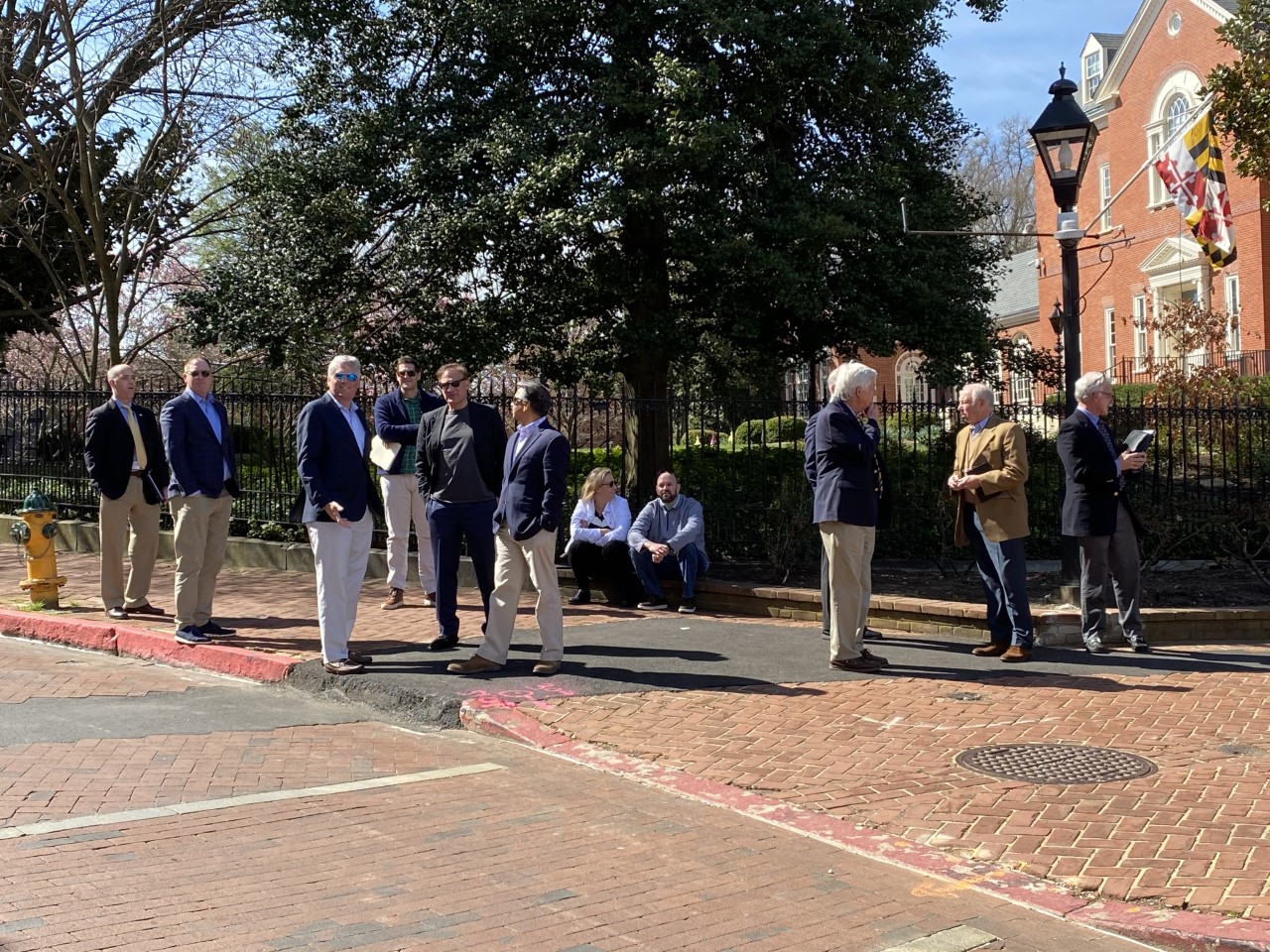Lobbyists and Policy Advocates Locked Out, Meet Unprecedented Challenges

Halls of the Annapolis State House complex — normally abuzz with constituents, lawmakers and the press — are hushed.
Last week, Gov. Lawrence J. Hogan Jr. (R) prohibited the general public from visiting the State House as part of efforts to quash the spread of COVID-19 — effectively canceling all tours, public bill hearings and hard-fought face time in the halls of House and Senate office buildings.
With just hours left in the 2020 legislative session, lawmakers are dashing madly to put final touches on legislation they have long labored over.
Lobbyists and advocates are scrambling remotely, hoping to push their priority legislation over the finish line and to the governor’s desk.
The closing has brought challenges to the process. People are relying largely on texts, emails and live streams to reach bill sponsors and make their final entreaties.
Jennifer Bevan-Dangel, executive director of Advocates for Children and Youth called 2020 “a session of many firsts,” including the installation of new leadership in both chambers.
The public has turned to streaming services on the Maryland General Assembly website to keep up with what is happening in committee hearings and floor sessions they cannot attend.
But the streaming services have had glitches. Sometimes streams crash, videos don’t load and stakeholders get anxious.
“When that site crashes… there’s a huge black hole that’s created where we don’t know where our bills are,” Bevan-Dangel said.
Michelle Siri, executive director of the Women’s Law Center of Maryland, said that the streaming capability on the Maryland General Assembly website has been “challenging” — enough that she and a group of advocates who focus around the same issues have created text threads where one person watching sends updates to the group.
Kristen Harbeson, political director of the Maryland League of Conservation Voters, said that she has little issue with the use of live-streams, and can recognize some lawmaker’s voices when a visual isn’t available. It’s what happens off the floors that is her missing piece.
The Senate Judicial Proceedings Committee, and several others, began live-streaming voting sessions over the weekend. Journalists also have live-streamed sessions.
Such measures have helped, but the challenge comes when lawmakers have questions and “we’re not there to answer them,” Harbeson said. That can leave committees to move on to less controversial, easier to move bills.
Stakeholders are worried that the shortened session will leave many of their priority bills in the dust. Harbeson cited House Bill 209, sponsored by Del. Brooke E. Lierman (D-Baltimore City) that would ban single-use plastic bags in the state.
The House passed Lierman’s bill last week, but, with time running out, it is unlikely to go far in the Senate.
While they cannot enter the State House, some advocates have gathered at Lawyer’s Mall to make a quick pitch to legislators who are walking to and from committees and floor sessions. But many choose to keep their distance.
Lobbyist Robyn S. Elliott said that even though her office is near the State House, she is trying to be respectful of physical boundaries during this difficult time.
Elliott said that these unprecedented difficulties have underscored the importance of the Department of Legislative Services staffers who “are really going into overtime” to help lobbyists and advocates do their jobs remotely.
And they are doing that when fewer legislative staffers are available in Annapolis and many are working from home.
Still, the inability to talk with lawmakers face-to-face leaves advocates calling and emailing, often to no avail.
“If a constituent reaches out to an office and no one is there to hear it, did it make a sound?” Bevan-Dangel asked.




 Creative Commons Attribution
Creative Commons Attribution